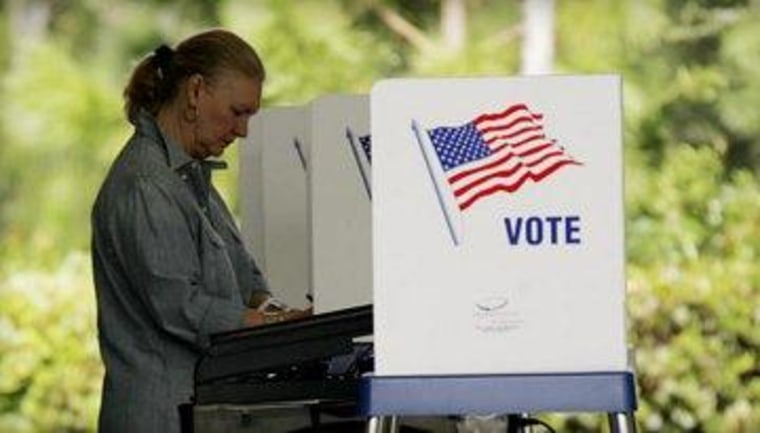With lightning speed, state Republican policymakers responded to the Supreme Court's ruling on the Voting Rights Act by moving on a series of new voting restrictions, primarily targeting minority groups, students, and the poor. Before two weeks ago, many states would have needed Justice Department approval for these changes -- approval they would not have received -- but it is now "open season" on Americans' access to their own democracy.
There is, however, a possible hurdle for those waging the "war on voting." The Supreme Court undermined the Voting Rights Act by targeting Section 5 of the law -- the provision related to pre-clearance -- ordering Congress to come up with new standards and leaving this area of the law unenforceable. But Section 2 of the VRA -- described by Chief Justice John Roberts in his ruling as "permanent" and applicable "nationwide" -- remains intact.
One side effect of the Supreme Court's decision to stop enforcement of Section 5 of the Voting Rights Act is clear: a flood of new lawsuits that have already begun.The ruling all but guarantees that voting rights advocates will pivot toward filing lawsuits relying on a separate piece of the law, Section 2, to challenge procedures which might impede voters. [...]Section 2 ... bans voting procedures that discriminate on the basis of race, color, or membership in one of the language minority groups.... To win a Section 2 case, the Justice Department or a plaintiff doesn't need to prove that a voting procedure had an invidious intent -- only that it had the result of denying a racial or language minority an opportunity to take part in the political process.
Given the discriminatory nature of so many of the Republican voting restrictions, these are cases that can be won. There's ample evidence, for example, that voter-ID laws have an inherently discriminatory effect. The same can be said for GOP efforts to eliminate early voting opportunities and scrapping Sunday voting altogether.
This isn't to say voting-rights advocates have a silver bullet. On the contrary, the litigation will be costly, time-consuming, and difficult -- the burden will be on the plaintiffs to prove that the laws are discriminatory, not on the state to prove that they're not. For that matter, legal outcomes are uncertain -- Republican-appointed judges may be less sympathetic to litigants fighting for equal voting rights.
But it's nevertheless an angle to the fight worth watching, and may well be the saving grace for those who hope to see equal access for all.
